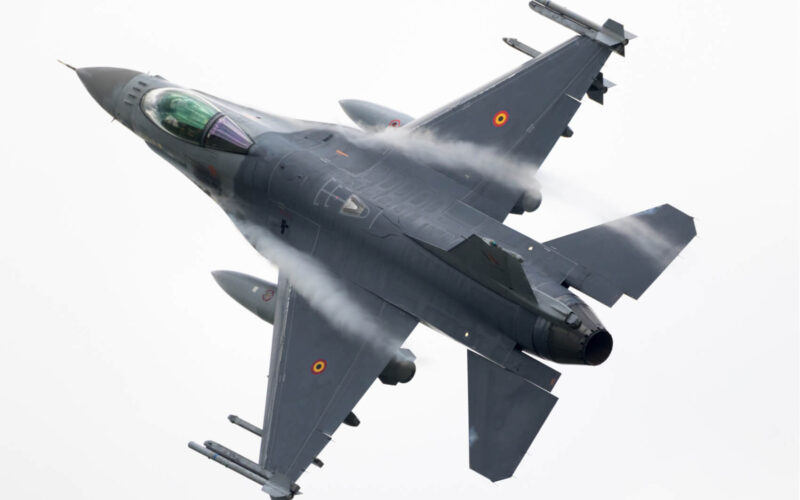The Belgian participation in the NATO Baltic Air Policing mission is coming to an end. But their last days act as a reminder of how crucial their role is. In the span of a week, no less than five interceptions of Russian aircraft were carried out by the Belgian Air Force.
The four F-16 fighter jets operating from Siauliai airbase in northern Lithuania were scrambled to intercept Russian aircraft that included a TU-134 jetliner and an AN-26 transport plane, which were flying between the Russian mainland and Kaliningrad.
Two SU-24 bombers and a SU-27 fighter jet did not answer the air traffic control center and were intercepted as the flight group was flying above the USS Donald Cook, a US Navy 6th Fleet destroyer navigating off the coast of Lithuania.
Coincidentally, the Allied Air Command based in Ramstein, Germany, was holding a series of exercises in the Baltic air space that include airspace surveillance and policing, but also search and rescue and other air missions. The exercises involve Lithuania, Belgium, Poland, Germany, Sweden, and Finland, as well as NATO’s E-3A AWACS.
Since the deployment of the Belgian unit in September 2019, 50 Russian planes approaching NATO airspace over the Baltic Sea had been intercepted.
Belgium was the first country to take part in the Baltic Air Policing mission in 2004 when the Baltic States joined NATO. It is one of the main missions of NATO air forces, which protects Estonian, Latvian and Lithuanian airspaces from incursions, as these countries have no airborne capability of their own.
The sixteen allied air forces participating in the mission are rotating regularly. After eight months of deployment, the Belgian air force will leave its place at the end of April 2020.

